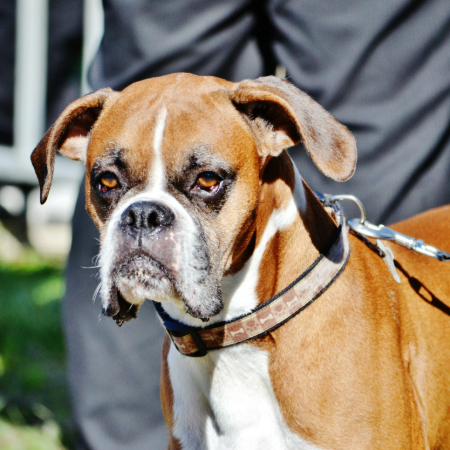The Best Dog Breeds for Therapy Work: Finding the Right Fit
When you think of therapy dogs, what comes to mind? Maybe you picture a gentle golden retriever nuzzling up to a patient in a hospital or a calm labradoodle sitting quietly beside someone going through a tough time. Therapy dogs are known for their special ability to provide emotional support, comfort, and companionship. But did you know that not all dog breeds are suited for therapy work? Just like people, dogs have their own personalities, temperaments, and energy levels, which can make some breeds better for therapy than others.
In this article, we’ll take a fun and informative look at the best dog breeds for therapy work. Whether you’re considering becoming a therapy dog owner or just want to learn more, this guide will help you find the right fit for therapeutic purposes. So, let’s dive in!
What Makes a Great Therapy Dog?
Before we talk about specific breeds, let’s first understand what makes a great therapy dog. Therapy dogs are trained to provide emotional comfort to individuals in various settings, including hospitals, nursing homes, schools, and even airports. Unlike service dogs, who are trained to assist with specific disabilities, therapy dogs are there to bring emotional relief, lower stress levels, and improve overall well-being.

Here are a few key traits that are important for a dog to excel in therapy work:
Gentle temperament: A calm and relaxed personality is essential. Therapy dogs must be patient and not easily startled.
Sociability: Therapy dogs need to be friendly with people and other animals, as they’ll encounter a variety of individuals and environments.
Good manners: They should be well-trained and behave politely in different situations.
Emotional sensitivity: The best therapy dogs are able to sense when someone needs comfort and respond with care and attention.
Adaptability: Therapy dogs will be exposed to a wide range of settings, so they need to be comfortable with new situations and environments.
Now that we have a general understanding of the qualities that make a great therapy dog, let’s explore the top breeds for this rewarding work!
1. Golden Retriever
Golden Retrievers are one of the most popular therapy dog breeds—and for good reason. Their gentle and friendly nature makes them perfect companions for people in need of emotional support. They are naturally patient and affectionate, which makes them excellent at interacting with a variety of individuals.
Golden Retrievers are also highly trainable. They are eager to please, which makes them responsive to commands and training for therapy work. Whether they’re visiting a hospital, comforting a child, or providing companionship to an elderly person, Golden Retrievers excel in almost every therapy setting.
Fun Fact: Golden Retrievers are also often used as guide dogs for people with visual impairments, thanks to their intelligence and ability to be trained for specific tasks.
2. Labrador Retriever
Like Golden Retrievers, Labrador Retrievers are known for their calm demeanor, friendly disposition, and willingness to work. Labs are often the go-to breed for therapy work because of their affectionate nature and innate sociability.
Labradors are very people-oriented, meaning they enjoy being around humans, and they can sense when someone is feeling down. This makes them perfect for hospitals, nursing homes, or even schools where emotional support is needed. They are also highly trainable and respond well to obedience training, which makes them reliable and trustworthy therapy partners.
Fun Fact: Labs are also often used in search-and-rescue missions and as service dogs due to their intelligence and work ethic.
3. Poodle (Standard, Miniature, and Toy)
Poodles might not always be the first breed you think of when it comes to therapy dogs, but they are absolutely fantastic at it. Standard Poodles, in particular, are often chosen for therapy work due to their gentle nature, intelligence, and calm demeanor.
Poodles are highly trainable, which makes them great candidates for therapy dog training. They’re also hypoallergenic, which is a big plus for individuals with allergies. Despite their elegant appearance, Poodles are friendly and love to socialize with people of all ages.
Fun Fact: Poodles were originally bred as water retrievers, and they are still known for their intelligence and versatility. Their hypoallergenic coats make them a good choice for people who need a therapy dog but have sensitivities to dog fur.
4. Cavalier King Charles Spaniel
If you’re looking for a smaller breed with a big heart, the Cavalier King Charles Spaniel is a fantastic choice. These dogs are known for being affectionate, easygoing, and social, which are all qualities that make them ideal therapy dogs. They’re particularly well-suited for environments where a gentle and calming presence is needed, such as in hospitals or nursing homes.

Cavalier King Charles Spaniels are known for their gentle, non-aggressive nature, and they love being around people. They’re also easy to train, which is another reason they’re often selected for therapy work.
Fun Fact: These little dogs were originally bred as companion dogs for royalty in England, and they still maintain that affectionate, people-pleasing personality today.
5. Basset Hound
Basset Hounds may not be the first breed you think of for therapy work, but they have some excellent qualities that make them wonderful companions for people in need of emotional support. Basset Hounds are calm, gentle, and patient, and they have a unique ability to provide comfort through their steady, relaxed demeanor.
Their low-key attitude and friendly nature make them great for working with individuals who may be feeling anxious or overwhelmed. Plus, their soulful eyes and droopy faces often elicit a sense of warmth and tenderness from those around them.
Fun Fact: Basset Hounds have an incredible sense of smell and were originally bred for hunting, but in therapy work, their quiet, calm presence is what really shines.
6. German Shepherd
German Shepherds are known for their intelligence, loyalty, and strong work ethic. While they’re often seen in roles such as police dogs or service dogs, they can also make excellent therapy dogs due to their calm, empathetic nature when trained properly.
German Shepherds tend to form strong bonds with their owners and are very intuitive. They can sense when someone is stressed or anxious and will often respond by providing comfort and support. They’re also easy to train and respond well to commands, which is crucial for therapy work.
Fun Fact: German Shepherds are often used in law enforcement and military roles, but they’re just as effective in providing emotional support when trained for therapy work.
7. Shih Tzu
Shih Tzus is a smaller breed with a big personality. These dogs are friendly, affectionate, and great with people, making them excellent therapy dogs. Despite their small size, Shih Tzus have a big heart and love to offer comfort and companionship to anyone who needs it.
Shih Tzus are calm and good-natured, and they don’t typically get anxious in new environments, making them perfect for therapy settings where they may encounter different people and situations. They are also easy to groom, which is an added bonus for those who want a therapy dog that doesn’t require too much maintenance.
Fun Fact: Shih Tzus were originally bred as companion dogs for Chinese royalty, and they still hold onto that charming, affectionate personality.
8. Boxer
Boxers are known for their playful, energetic nature, but they also have a very sweet and gentle side, especially when they’re around people. Boxers are incredibly affectionate and protective of their families, which makes them great therapy dogs for people who need emotional support.

They are loyal and loving, and their enthusiasm is often contagious, lifting the spirits of anyone they encounter. While their energy may be high at times, Boxers are also calm and gentle when they need to be, making them well-suited for therapy work.
Fun Fact: Boxers are known for their “smile” — they often grin when happy, which can be incredibly uplifting for anyone in need of a little emotional boost.
Conclusion: Finding the Right Fit
Choosing the right dog breed for therapy work depends on the specific needs of the person who will be receiving the therapy. Whether you’re looking for a dog to provide comfort in a hospital, support in a school, or companionship for someone at home, there are many wonderful breeds that make excellent therapy dogs. Golden Retrievers, Labradors, Poodles, and Cavalier King Charles Spaniels are among the top choices, but there are many other breeds that can excel in therapy work too. It’s all about finding a dog that has the right temperament, patience, and affection to help others.
If you’re thinking of getting a therapy dog, remember that training and socialization are key to success. Even the best breed for therapy work needs to be well-trained and accustomed to different environments. With the right preparation, your therapy dog can bring joy and comfort to countless people, spreading happiness wherever they go.
Doglime for more dog-related information.
Tags









